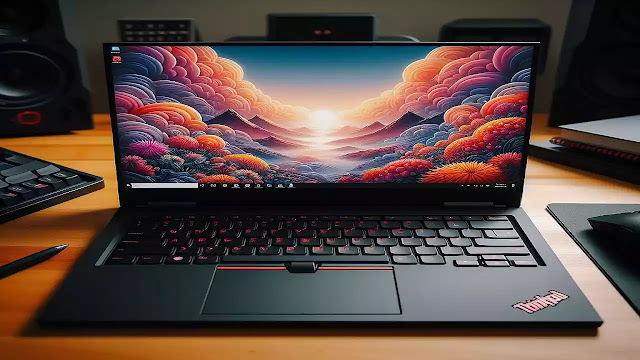Unlocking the Potential: Virtual Reality in Real Estate
Introduction
Welcome to the future of real estate! In this comprehensive guide, we invite you to explore the transformative power of virtual reality (VR) in the dynamic world of property buying and selling. Join us on a captivating journey through the immersive realm of virtual tours and property previews, where traditional boundaries are shattered, and possibilities are endless. Discover how VR technology is revolutionizing the way we experience and interact with properties, offering unprecedented opportunities for buyers, sellers, and agents alike.
 |
Virtual Reality in Real Estate |
Embracing Innovation in Real Estate
Innovation is driving change in the real estate industry, with virtual reality (VR) technology leading the way:
- Technological Advancements: The real estate industry is at the forefront of technological advancements, leveraging innovations like virtual reality to enhance the buying, selling, and experiencing of properties.
- Tangible Reality: What was once a distant dream is now a tangible reality, as virtual reality technology becomes more accessible and widely adopted by buyers, sellers, and agents across the industry.
- Unprecedented Opportunities: Virtual reality offers unprecedented opportunities for buyers to explore properties in immersive detail, for sellers to showcase their listings with interactive virtual tours, and for agents to differentiate themselves with cutting-edge marketing strategies.
- Enhanced Experiences: With virtual reality, buyers can experience properties as if they were physically present, allowing them to visualize layouts, assess features, and gauge ambiance with unparalleled realism, leading to more informed decisions and higher satisfaction rates.
- Competitive Edge: Embracing virtual reality gives sellers and agents a competitive edge in the market, positioning them as innovative leaders and attracting tech-savvy clients who value immersive experiences and forward-thinking approaches.
- Industry Transformation: Virtual reality is transforming the real estate industry, revolutionizing the way properties are bought, sold, and experienced, and paving the way for a more efficient, convenient, and engaging future.
In summary, virtual reality represents a significant leap forward for the real estate industry, offering unparalleled opportunities for innovation, growth, and success. By embracing virtual reality, buyers, sellers, and agents can unlock new possibilities and shape the future of real estate in exciting and transformative ways.
The Rise of Virtual Tours
Virtual tours have become a game-changer in the real estate market, offering unparalleled benefits to both buyers and sellers:
- Lifelike Experience: Virtual tours provide prospective buyers with a lifelike experience, allowing them to explore properties in exquisite detail from the comfort of their homes, enhancing engagement and facilitating decision-making.
- Convenience and Accessibility: With virtual tours, buyers can view properties at any time and from anywhere, using VR headsets or mobile devices to navigate through homes as if they were physically present, saving time and effort associated with traditional viewings.
- Exquisite Detail: Virtual tours capture properties in exquisite detail, allowing buyers to examine every aspect, from room layouts and architectural features to interior design and decor, providing a comprehensive understanding of the space.
- Seamless Navigation: Virtual tours offer seamless navigation, enabling buyers to move smoothly from room to room and explore different areas of the property at their own pace, enhancing the user experience and facilitating exploration.
- Increased Engagement: Virtual tours captivate buyers with immersive experiences that evoke emotions and foster connections with properties, leading to increased engagement, interest, and ultimately, higher likelihood of inquiries and offers.
- Competitive Advantage: For sellers and agents, offering virtual tours provides a competitive advantage in the market, attracting tech-savvy buyers and differentiating listings from the competition, leading to faster sales and higher satisfaction rates.
In summary, virtual tours have emerged as a transformative tool in the real estate market, offering prospective buyers lifelike experiences and unparalleled convenience, accessibility, and engagement. By embracing virtual tours, sellers and agents can stay ahead of the curve and elevate their marketing efforts in an increasingly competitive industry.
Immersive Property Previews
Virtual reality (VR) technology has revolutionized property previews by offering immersive walkthroughs that provide buyers with a realistic and engaging experience:
- Realistic Simulation: VR technology creates lifelike environments that allow buyers to explore properties as if they were physically present, providing a sense of scale, depth, and perspective that static images and floor plans cannot convey.
- Interactive Exploration: Buyers can navigate through virtual spaces at their own pace, freely moving from room to room and interacting with objects and features within the property, enabling them to fully experience the layout and ambiance.
- Detailed Assessment: VR allows buyers to assess every aspect of the property, from the layout and design to the quality of finishes and materials, empowering them to make more informed decisions about whether a home meets their needs and preferences.
- Emotional Connection: Immersive property previews evoke an emotional response from buyers, enabling them to visualize themselves living in the space and envisioning their future within the property, leading to increased engagement and attachment.
- Convenience and Accessibility: Virtual walkthroughs can be accessed from anywhere with an internet connection, allowing buyers to explore properties remotely and at their own convenience, saving time and effort associated with physical viewings.
- Enhanced Collaboration: VR facilitates collaboration between buyers, agents, and sellers by providing a shared platform for exploring and discussing properties, streamlining communication and decision-making processes.
In conclusion, virtual reality offers immersive property previews that revolutionize the way buyers explore and experience homes, providing them with a realistic and engaging perspective that enhances decision-making and fosters emotional connections with properties.Breaking Down Barriers
Breaking Down Barriers
Lets explore how virtual reality revolutionizes real estate by overcoming geographical barriers, allowing buyers worldwide to access property listings seamlessly:
- Global Property Exploration: VR technology enables potential buyers to virtually tour properties from anywhere in the world, eliminating the need for physical travel and opening doors to a global marketplace.
- Accessible Listings: With VR, property listings become easily accessible to buyers regardless of their location, providing them with an immersive and realistic experience of the property without having to be physically present.
- Convenience and Flexibility: Buyers can explore properties at their own convenience and pace, fitting virtual tours into their busy schedules without the limitations of time zones or travel arrangements.
- Expanded Market Reach: For sellers and agents, VR expands the reach of property listings beyond local markets, attracting international buyers and increasing exposure to a wider pool of potential clients.
- Enhanced Decision-Making: Virtual property tours empower buyers to make more informed decisions by providing them with a comprehensive view of the property layout, features, and amenities, leading to confident and decisive actions.
- Cost Savings: By eliminating the need for extensive travel to view properties in person, VR saves buyers time and money associated with transportation, accommodation, and other expenses related to traditional house hunting.
- Environmental Impact: Virtual property tours contribute to reducing carbon emissions associated with travel, aligning with sustainability goals and reducing the environmental footprint of the real estate industry.
In conclusion, virtual reality is breaking down geographical barriers in real estate, enabling buyers worldwide to access property listings seamlessly and revolutionizing the way properties are explored, marketed, and sold in a global marketplace.
Enhancing the Buying Experience
Virtual reality (VR) is reshaping the way buyers experience and interact with properties, offering a unique opportunity to enhance the buying process:
- Personalized Design Visualization: VR enables buyers to visualize renovations, furniture placements, and design alterations in real-time, allowing them to customize their future living spaces according to their preferences and style.
- Informed Decision-Making: By immersing themselves in virtual environments, buyers gain a deeper understanding of the property layout, flow, and potential, enabling them to make more informed decisions about whether a home meets their needs and aspirations.
- Reduced Risk and Uncertainty: VR empowers buyers to experiment with different design options and configurations, minimizing the risk of buyer's remorse and uncertainty associated with traditional property purchases.
- Increased Engagement and Satisfaction: The ability to customize and personalize their future homes enhances buyers' emotional connection to the property, leading to increased engagement, satisfaction, and ultimately, higher likelihood of completing the purchase.
- Seamless Collaboration: VR facilitates seamless collaboration between buyers, agents, and designers, allowing stakeholders to communicate and iterate on design ideas effectively, leading to smoother transactions and improved client-agent relationships.
- Time and Cost Savings: Virtual design visualization with VR reduces the need for physical visits to multiple properties and costly renovations post-purchase, saving buyers time, effort, and money in the long run.
In summary, virtual reality enhances the buying experience in real estate by empowering buyers to customize and personalize their future homes with ease. By leveraging VR technology, buyers can make more informed decisions, minimize risk and uncertainty, and ultimately, create their dream living spaces with confidence.
Empowering Real Estate Professionals
Real estate professionals have a unique opportunity to leverage virtual reality (VR) technology to revolutionize their marketing strategies and enhance client engagement. Here's how:
- Immersive Property Showcases: With VR, agents and developers can create immersive virtual tours that allow potential buyers to explore properties as if they were there in person, fostering a deeper connection and understanding of the space.
- Interactive Experiences: VR enables real estate professionals to offer interactive experiences, where clients can customize their virtual tours, visualize design options, and experience properties in a way that traditional methods cannot replicate.
- Differentiation in the Market: By embracing VR, professionals can differentiate themselves from competitors and position themselves as innovative leaders in the industry, attracting tech-savvy buyers and sellers who value cutting-edge marketing techniques.
- Enhanced Client Engagement: VR not only attracts a wider audience but also keeps them engaged for longer periods. Clients are more likely to remember and revisit properties showcased through VR, leading to increased inquiries and conversions.
- Streamlined Decision-Making: VR works on the dynamic cycle for clients by furnishing them with a practical and exhaustive perspective on properties. This leads to faster and more confident decisions, benefiting both clients and professionals alike.
- Global Reach: With VR, real estate professionals can reach clients anywhere in the world, breaking down geographical barriers and expanding their market reach beyond local boundaries.
- Cost-Effective Marketing: While VR technology may have initial setup costs, it ultimately proves to be a cost-effective marketing tool, reducing the need for physical staging and travel expenses associated with traditional property viewings.
In conclusion, virtual reality empowers real estate professionals to showcase properties in an engaging and interactive manner, ultimately leading to increased client satisfaction, faster sales cycles, and a competitive edge in the market. By embracing VR, professionals can stay ahead of the curve and drive success in the ever-evolving real estate landscape.
Addressing Common Concerns
While virtual reality presents exciting opportunities, it's crucial to address common concerns to ensure inclusivity and user satisfaction:
- Accessibility Initiatives: Efforts are underway to improve VR accessibility for individuals with disabilities, including developing adaptive technologies and designing user-friendly interfaces.
- Affordability Solutions: Innovations in VR hardware and software aim to make immersive experiences more affordable and accessible to a wider audience, driving adoption and usage.
- User Experience Enhancements: Ongoing advancements in VR technology focus on enhancing user experience through intuitive design, smoother navigation, and improved comfort features.
The Future of Real Estate
As we gaze into the future of real estate, the integration of virtual reality (VR) promises to reshape the industry in remarkable ways. Here is a slip look into what lies ahead:
- Virtual Reality Everywhere: VR technology will become ubiquitous in the real estate market, transforming how properties are showcased and experienced.
- Enhanced Property Previews: With VR, potential buyers can enjoy immersive virtual tours of properties from the comfort of their homes, revolutionizing the house-hunting process.
- Personalized Experiences: Real estate agents will leverage VR to offer clients personalized and interactive experiences, strengthening relationships and improving customer satisfaction.
- Global Accessibility: VR will break down geographical barriers, allowing buyers to explore properties from anywhere in the world with just a click, opening up new markets and opportunities.
- Innovation in Marketing: Sellers will adopt innovative VR marketing strategies to attract buyers and stand out in a competitive market, driving engagement and increasing property visibility.
- Architectural Visualization: VR will empower architects and developers to create lifelike virtual models of properties, enabling clients to visualize designs and make informed decisions.
- Collaborative Planning: VR will facilitate collaborative planning and decision-making processes among stakeholders, streamlining project development and enhancing efficiency.
- Augmented Reality Integration: The integration of augmented reality (AR) with VR will offer even more immersive and interactive property experiences, blurring the lines between virtual and reality.
As the real estate industry continues to embrace virtual reality, the future holds endless possibilities, promising a more convenient, efficient, and imaginative way of buying, selling, and experiencing properties.
Conclusion
Virtual reality has become a game-changer in the realm of real estate, revolutionizing how properties are showcased, marketed, and experienced. This cutting-edge technology is not merely a trend but a transformative force that has firmly established itself in the industry landscape.
The utilization of virtual reality in real estate, particularly in virtual tours and property previews, has opened up a world of possibilities for all stakeholders involved. For buyers, VR offers a unique opportunity to explore properties from the comfort of their own homes, saving time and effort typically spent on physical viewings. With just a few clicks, prospective buyers can virtually walk through a property, examining every detail and getting a true sense of its layout and ambiance. This immersive experience helps them make more informed decisions and narrow down their options efficiently.
On the seller's side, virtual reality serves as a powerful marketing tool, enhancing the visibility and appeal of properties in the competitive real estate market. Instead of relying solely on photographs or traditional 2D floor plans, sellers can now provide potential buyers with interactive virtual tours that showcase their properties in the best possible light. This not only attracts more interest but also increases the likelihood of inquiries and offers.
virtual reality has become an indispensable tool in the real estate industry, offering unparalleled benefits to buyers, sellers, and agents alike. As technology continues to evolve and VR becomes more accessible, its impact on the way we buy, sell, and experience properties will only continue to grow. Embracing virtual reality in real estate is not just about staying ahead of the curve it's about unlocking new possibilities and shaping the future of the industry.
FAQs
How accurate are virtual tours compared to physical visits? Virtual tours strive for accuracy by providing detailed, 360-degree views of properties. While they offer a realistic representation, physical visits may still be necessary for a comprehensive assessment.
Can virtual reality be used for commercial real estate? Absolutely! Virtual reality is applicable across various sectors, including commercial real estate. From office spaces to retail outlets, VR can provide immersive experiences for potential tenants and investors.
Are virtual tours expensive to create? The cost of creating virtual tours can vary depending on factors such as the size of the property and the level of customization required. However, with advancements in technology, VR solutions are becoming increasingly accessible and cost-effective.
Are there any security concerns associated with virtual tours? Privacy is a paramount concern in virtual tours, especially when showcasing occupied properties. It's essential for agents and developers to obtain consent from homeowners and respect their privacy rights during the virtual viewing process.
Can virtual reality help with property staging? Yes, virtual reality can revolutionize the property staging process by allowing potential buyers to visualize different staging options virtually. This not only streamlines the staging process but also enables greater flexibility and creativity.
How can real estate agents leverage virtual reality in their marketing efforts? Real estate agents can leverage virtual reality by offering virtual tours as part of their listings, hosting virtual open houses, and incorporating VR content into their marketing campaigns to attract and engage prospective buyers.





